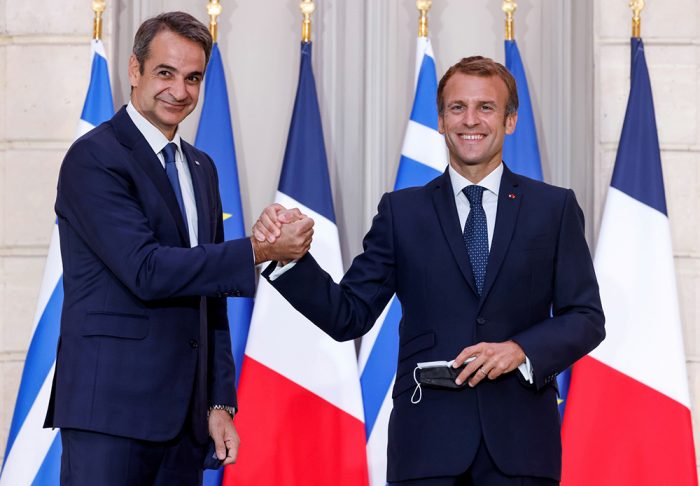Ο Παναγιώτης Τσάκωνας μιλάει για την ελληνογαλλική αμυντική συμφωνία και τις συνέπειές της για την αμυντική και εξωτερική πολιτική της Ελλάδας.
Μπορείτε να διαβάσετε τα σχόλια, στα κινέζικα, εδώ
“Greece has a long history of leaning towards European defense autonomy. Turkey is an old problem and has become a traditional security threat. Greece has attempted for many years to turn both the EU and NATO into “security providers”, yet it got zero from NATO and not exactly what it expected from the EU” Panagiotis Tsakonas, a professor of international relations at the University of Athens and senior research at ELIAMEP told in an interview with The Paper, “Greece certainly supports the strengthening of the European defense autonomy, and it strongly believes it will be one of the beneficiaries.”
However, Tsakonas also pointed out that the pursuit of common European defense is a “very ambitious project” and that the European countries have a long way to go for agreeing on common threats and in forming common capabilities. To this end that stance of Germany, a dominant player in the EU, is of particular importance.
According to Professor Tsakonas “it is worth emphasizing that according to the “mutual assistance clause” included in the Greek-French military agreement France’s armed support to Greece to materialize a military attack to the Greek territory should take place. This means that France would provide military assistance to support Greece’s “sovereignty” not Greece’s “sovereign rights”, which may regard Greece’s claims to continental self or Exclusive Economic Zone (EEZ) over a non-delimited area in the Eastern Mediterranean.”
“We may thus see Turkey’s illegal (exploration) activities continue” Professor Tsakonas said, “although Greece’s deterrent ability was strengthened by the Greek-French military agreement especially towards Turkey’s future attempts to create a “fait accompli” in the Eastern Mediterranean.




